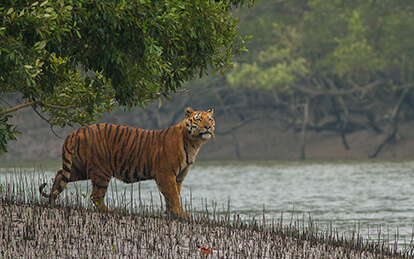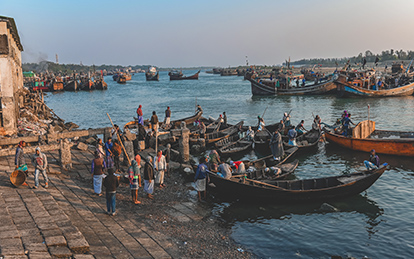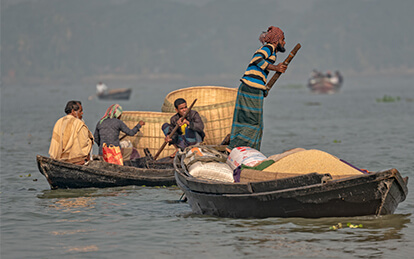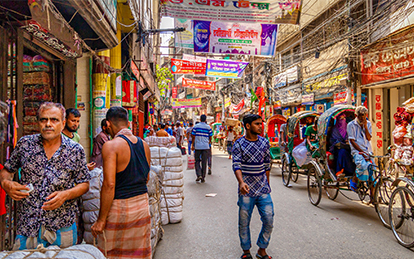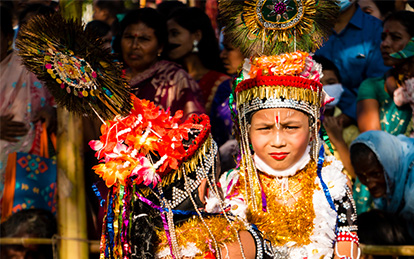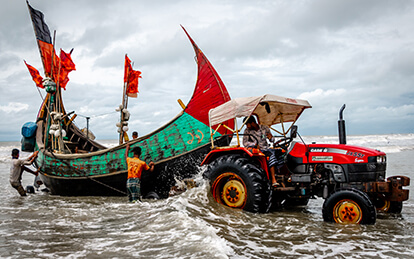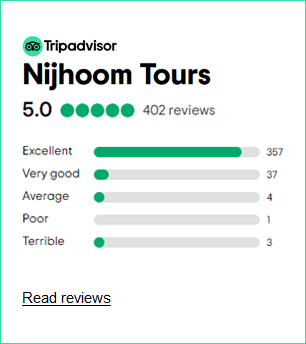
Eid-al-Fitr is one of the two major festivals of the Muslim world. Bangladesh being a Muslim majority country, the joy and happiness of Eid are spread to all the citizens of the country, regardless of their religion. After one month of fasting, Eid-al-Fitr brings happiness to all the Muslim people in Bangladesh.
Buying new cloths
The preparation of Eid begins long before the Eid day when everyone becomes busy buying new clothes for the festival. People buy for themselves, for the family, and for relatives. Everyone buy according to their ability. Girls get busy running between shopping malls to buy matching ornaments. This goes on until the previous night of Eid.
Presenting Eid cards
Children in the school like to present Eid greetings cards to their school friends. Before Eid, temporary greetings card shops are seen everywhere on the streets, where children can buy cards in cheap.
Returning to the root
Then become going home to their own districts. Everyone wants to celebrate their Eid with their family. People usually come to live in the major cities to earn their living. During Eid, they want to go back to their home to celebrate the festival with their family and relatives, no matter how far that place is from where they live. Every home in every village become full during this period. In this time everyone meets their relatives, friends, and neighbors whom they haven’t met for months, maybe for years. People gather everywhere in the bazaars and streets of the villages. Everywhere sound of greetings is heard and embracing is seen.
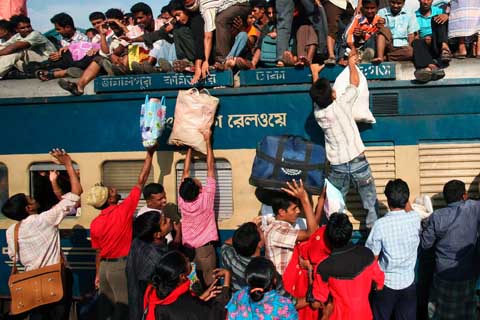
Over-crowded train during Eid
This going back home becomes a very tough thing, especially in Dhaka. As everyone starts to go back home at the same time a few days before Eid, it becomes very difficult to arrange transportation. Wealthy people go in their own vehicles. Some people rent cars from rental companies, some go by plane. But most of people just rely on public transports – trains, buses, and ferries. About 10 days before the Eid, selling advance tickets for public transportation begins.
All the transports become overloaded at this time. Everyone becomes desperate to go back home in any way. even the roofs of buses, trains, and ferries become full. A dangerous situation arises for water transports. Sometimes ferries sink because of overloading during this period. Foreigners are advised to book their transportation long before if they wish to travel during this time. Otherwise, it might be a serious problem to arrange transportation during this time.
Finding out the moon
The night before Eid brings suspense to everyone because Eid will happen the next day only if the new moon is seen the night before. Everyone eagerly waits for the news of seeing the new moon anywhere in the country. The night before Eid is called “Chand Raat” or “The night of moon”. Celebrating Eid actually starts on this night.
Coloring hands with hena
As soon as the new moon is seen and Eid is confirmed in the next day, girls become busy coloring their hands with hena. In villages, they run in the villages from house to house in search of hena tree to collect their leaves. These leaves are first smashed very well before applying in the hands and need to keep a few hours to make a brighter color. They make a beautiful decoration in their hands with hena. They color their nails too. In cities, artificial hena is normally used which comes in tubes.
Pray for the dead
On the day of Eid, many people go to the graves of their close relatives, especially parents, to pray for them. Before prayers, people distribute a charity known as Fitra. Many people also avail themselves of this opportunity to distribute Zakah, an Islamic obligatory alms tax of 2.5% of one’s annual savings, to the needy. Zakat is often distributed in the form of food and new clothes.
Going for Eid prayer
After that men get ready wearing a special dress “Panjabi-Payjama” after having a bath and go to the Eid prayer. This prayer is prayed in a special field called “Eidgah”. Every neighborhood usually has an Eidgah. Where there is none, the prayer is prayed in the nearby mosques. Everyone wears their new dresses and use religious perfumes called “Atar”.
Embracing each other
After the prayer, everyone embrace each-other formally. This embracing continues the whole day, even the whole period of Eid when people meet friends or relatives.
Distributing ‘Eidi’ or ‘Salami’
Coming back home from prayer, small children do “Salam” to elderly family members touching their legs. Elders give them a small amount of money which is called “Eidi” or ‘Salami’. For children, collecting ‘Salami’ is a major part of their Eid happiness. Salami is normally given in new notes of money. People usually collect new notes before Eid to give Salami.
Eid special foods
A special food called ‘Semai’ is the first thing to eat during Eid day after returning from the Eid prayer. It is a special noodle-like food cooked with milk, sugar, and coconut. Much other sweet food is cooked beside many types of Semai on Eid day. Other special common foods are meat curry and “Khichuri”, which is made with rice and lentil. Much other special food is prepared according to the ability of the families.
Visiting relatives
In the evening, everyone goes to visit their relatives wearing new clothes. Eid special food is served there. This continues during the whole period of Eid, 2-3 days after the Eid. Some people go on holiday after the Eid day and stay their as long as their leave permits.
Enjoying the empty city
City people become very happy during Eid because only on these days of holidays they can enjoy the streets without traffic jam. The city becomes quiet and empty. People can walk in the streets relaxing. After the celebration, everyone starts to come back to the cities again, and life becomes, as usual, memorizing the joy of the Eid.
How do you celebrate your Eid? What do you do in the days of Eid? Where do you go, and what special food you prepare? Share with us in comments!
Check out our 1-7 days Bangladesh tour packages and 8-28 days Bangladesh holiday packages to visit Bangladesh with comfort.
[one_third] [/one_third] [one_third] [/one_third] [one_third_last] [/one_third_last] [clear] [one_third] [/one_third] [one_third] [/one_third] [one_third_last] [/one_third_last] [clear]